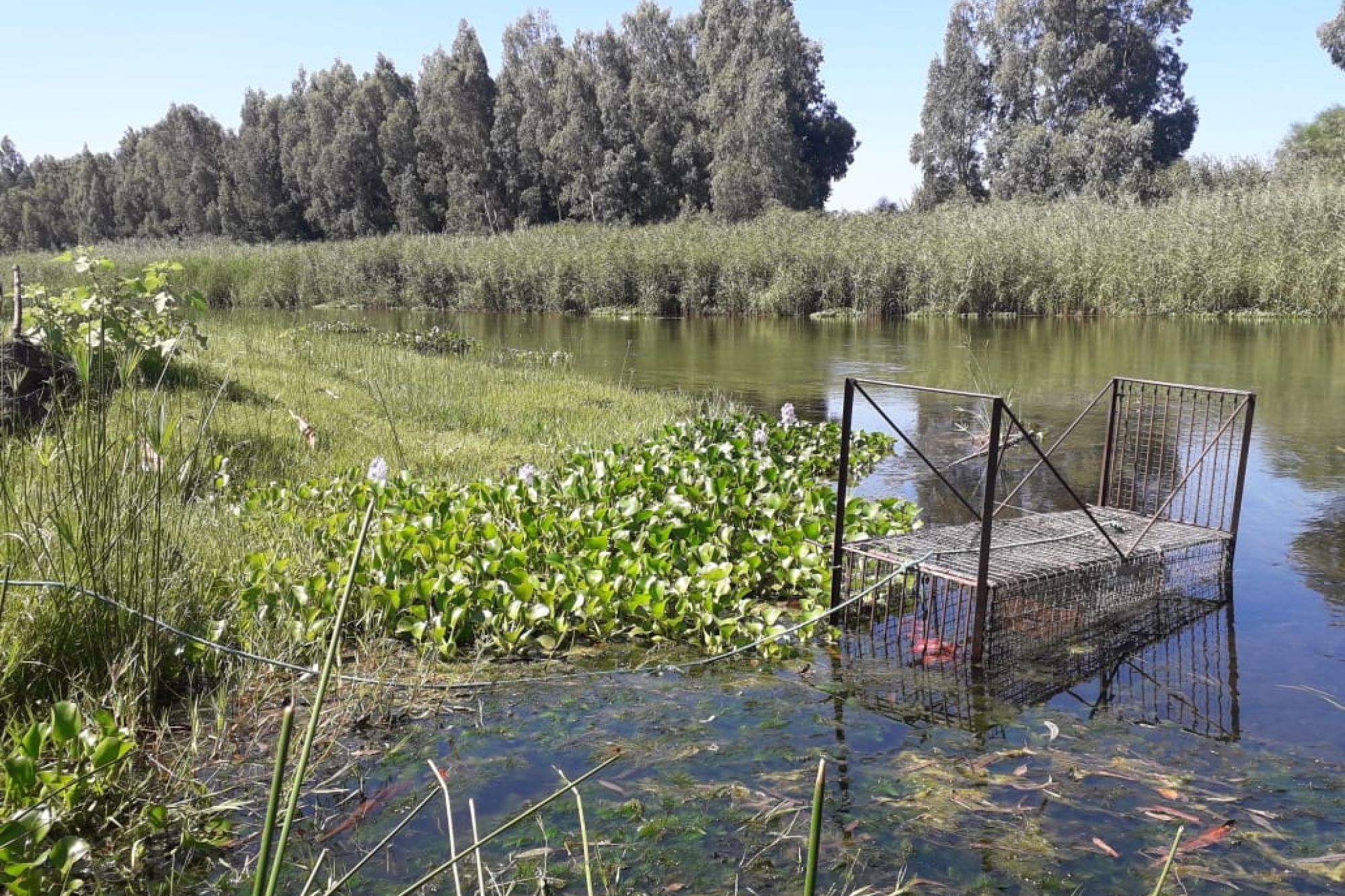
Escaped crocodiles at Bonnievale
* See update at the foot of the page
Following the escape of an unknown number of subadult Nile crocodiles (Crocodylus niloticus) from a breeding facility outside of Bonnievale on Wednesday morning, CapeNature can report that in addition to the 27 already recaptured, a further seven crocodiles had to be euthanized last night and six more were spotted, but could not be recaptured as yet.
The South African Police Services (SAPS) has availed four boats and eight police divers to assist in the nocturnal patrols searching for the escaped animals. Although a number of trap cages with bait were put out in a first attempt to recapture the animals, this method proved to be less effective since the escaped animals have access to an abundance of food in the river.
The overgrown river and dense vegetation on the riverbanks also make it very difficult to recapture these crocodiles. Being nocturnal animals the best time to search for them is at night, which brings its own challenges in terms of visibility. As time is of the essence, CapeNature and the search party partners were left with no choice, but to euthanize seven of the crocodiles spotted. Although crocodiles are indigenous to South Africa, they are not part of the natural fauna of the Western Cape.

Dr Razeena Omar says she is saddened by the extreme measure this operation is now requiring, but “CapeNature regards the safety of the surrounding community first and foremost, which further accentuates the urgency of the recapturing of these wild animals. The situation remains fluid and the recapturing techniques have to be effective in the best interest of public safety.” Dr Omar emphasised that: “The onus remains on wildlife owners to strictly adhere to permit regulations. A thorough investigation will be led by CapeNature to ascertain whether there was a breach in complying to the regulations which could have resulted in the escape of these young crocodiles.”
CapeNature in partnership with SAPS, the facility owner and surrounding landowners will continue with the recapturing efforts through night patrols. The area approximately 5km upstream towards Robertson, and 5km downstream towards Swellendam, remains the key area for surveillance and capture. The public is urged to not attempt to approach any crocodiles, but to immediately report any sightings to the Bonnievale SAPS on 023-616 8060.
19 March 2021 update:
- 66 crocodiles have now been accounted for




